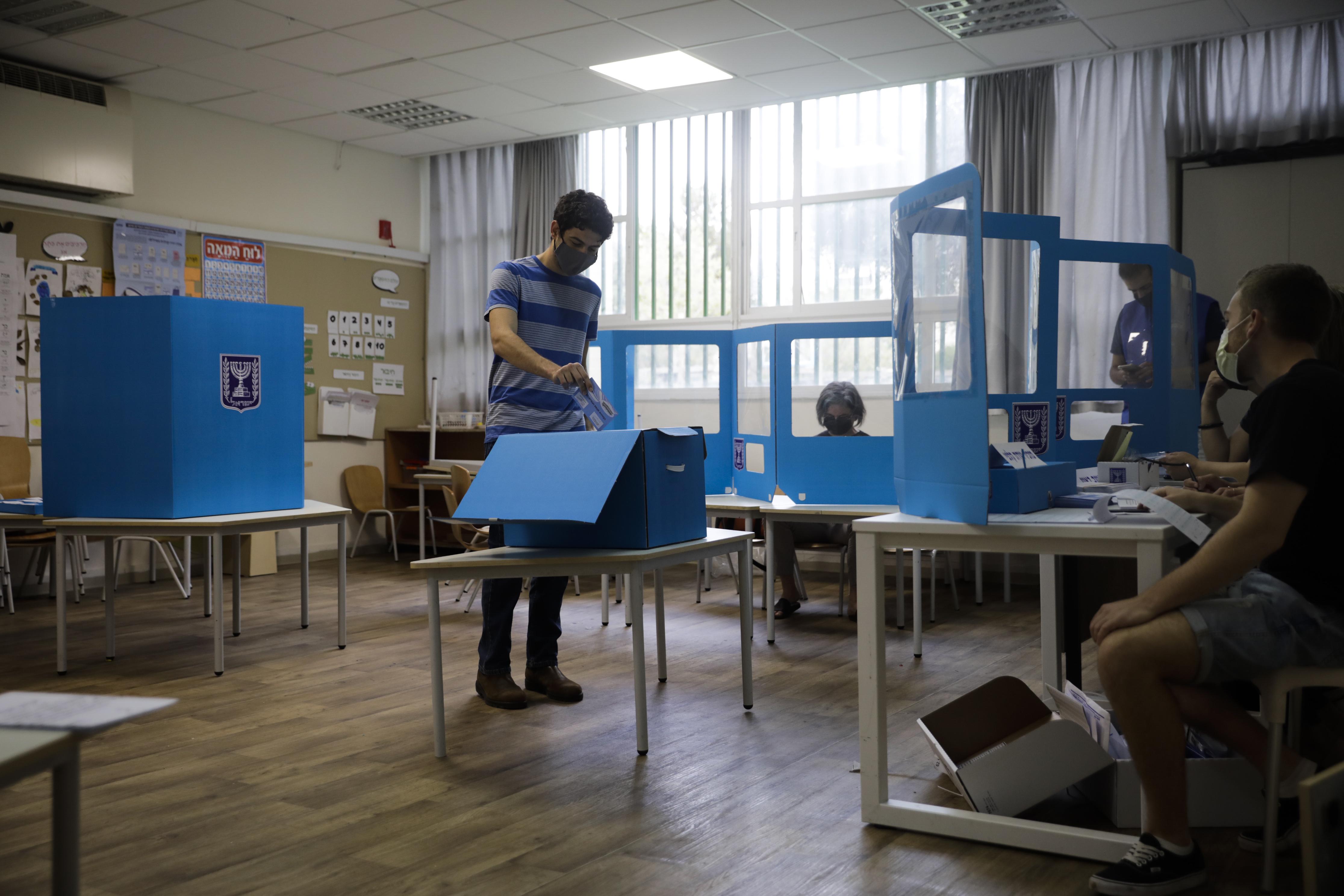
JERUSALEM, Israel – Israelis are heading to the polls for the fourth time in just two years today intending to finally bring political stability to the country.
Israel has been plagued by a political stalemate that began in December 2018. Weary from the coronavirus pandemic and political chaos, Israelis hope this is the last time they are forced to the ballot boxes in a long time.
Opinion polls forecast an extremely tight race, raising the potential for a continued political deadlock and unprecedented fifth consecutive election. However, if the polls are accurate, they give Prime Minister Benjamin Netanyahu’s Likud Party a clearer path to form a government than his rivals on the left and right.
In Israel, people do not vote for individuals, but for parties to fill Israel’s 120-seat Knesset – or parliament. Sixty-one is the magic number of seats each party is aiming for to seize control of the government. But since no party has ever won a 61-seat majority on its own, parties must partner together to form government coalitions.
Exit polls will be released at 10 p.m. Tuesday Israel time. However, results will likely take days, largely because of Israel’s so-called double envelop ballots. Double envelope ballots, which are absentee ballots cast anywhere outside of one’s assigned voting stations, are not counted at voting sites. Instead, they are taken to Israel’s Knesset to be counted after the regular ballots are tallied.
Usually, only special voters like soldiers, diplomats abroad, disabled people, prisoners, and hospital staff are allowed to use double envelope ballots. But because of the coronavirus outbreak, those double envelope ballots now include those sick with COVID-19, those in quarantine, and nursing home residents.
According to Ynet news, the number of double envelope ballots is expected to increase from 330,000 in the last election, to 500,000 to 600,000 today. That is the equivalent of 15 seats in Israel’s 120-seat parliament.
The increase in absentee ballots is expected to blur exit polls and could bring confusion over which parties will actually enter Israel’s parliament.
The head of the Central Elections Committee warned Monday that election results will likely be unknown for days and this delay could be exploited by those who seek to discredit the results of the election.
“It can certainly be a fertile ground for disseminating all kinds of information detached from reality,” CEC director Orly Adas told Radio 103 FM.
Adas asked Israelis to “be smart enough” not to believe “rumors and conspiracy theories” as the count continues.
This latest election follows the failure of a power-sharing government between the rival Likud and the Blue and White parties. This government collapsed because the two parties could not agree on a budget by a December 23 deadline.
The remainder of this article is available in its entirety at CBN

